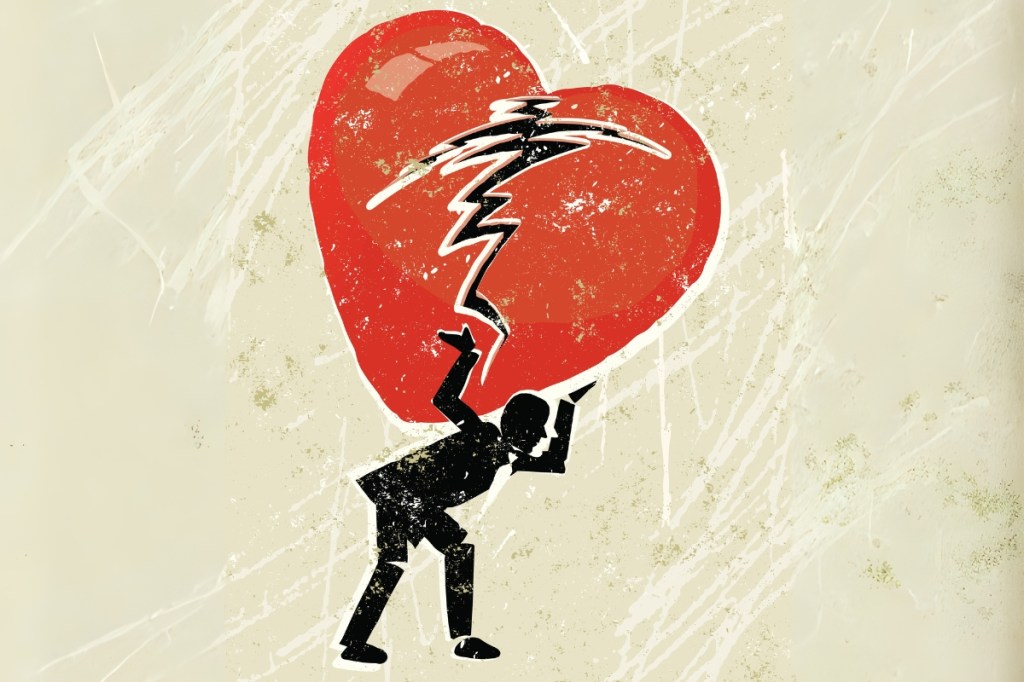A viral TikTok is making its rounds, discussing today’s dating scene and the problematic behaviors many of us exhibit—and the video (see below) raises some important points.
A specific quote stuck out to me from the TikTok: “You don’t have a type; you just have one thing you’re familiar with.”
I’ve explored this concept myself over the past several years, as I dated throughout my 20s. After a particularly painful breakup in my mid-20s, I realized I continued to date the same type of man, cultivate the same dynamic, and then wonder why it never seemed to work out for me.
And none of these men were in the wrong, so to speak. It’s just that I kept choosing partners I wasn’t compatible with, kept downplaying my own needs to seem more appealing, kept dimming my light so they could shine.
Why? Because somehow, deep down, it felt comfortable for me to do so. It was familiar—something I could control, an outcome I could accurately anticipate. I learned this behavior in childhood and repeated it in adulthood, in my romantic relationships and even my friendships at times.
But it takes deep self-awareness and intentional action to break that pattern. In fact, I’m still working on it to this day.
That begs the question…How can we differentiate between post-trauma conditioning and an authentic connection?

Trauma vs. Genuine Attraction
When you’ve been wired to repeat the same behaviors for survival, it can feel impossible to change. For example, if you were taught you needed to earn love by being easygoing and obedient in childhood, you might attract partners who take advantage of that. Or if you’re a particularly anxious individual, perhaps you naturally gravitate toward avoidant daters.
This just perpetuates the trauma, feeding the narrative that you are the problem. When really, it might just be your picker.
“When someone is stuck in a reenactment, they will tend to ignore the red flags that present themselves,” Angelika Koch shared with Taimi, LGBTQ+ Dating App. “You will notice old patterns and emotions begin to arise, such as the deep feeling of needing to fix things, feeling like you need to chase, or feeling like you need to earn this person’s love.”
So…how can you tell the difference between your trauma misguiding you vs. an actual connection? Well, for one thing, you love them as they are, not as you want them to be.
“Genuine attraction is based on who that person is and not the potential you see within them,” Koch said.
How to Break the Cycle
Self-awareness is the first step to healing from this toxic dating cycle. However, to begin discovering your genuine type—and pursuing people you’re actually compatible with and in alignment with—you must be willing to experience discomfort.
Set Boundaries Early On
If you’re so used to complying with everyone else’s commands, it might feel impossible to set your standards and boundaries. However, it’s crucial to understand and respect your own wants, needs, and values. That way, if someone crosses them, you can quickly remove yourself from the situation.
“Notice red flags early and set boundaries,” Koch said. “If someone can’t respect them, it’s important to walk away—that’s how you protect your mental health.”
Realize that Chemistry ≠ Compatibility
One of the hardest lessons I had to learn in my 20s was that just because you feel intensely drawn to someone, whether physically or emotionally, doesn’t mean you’re meant to date.
“People often mistake intensity for compatibility because they are basing their experience on how they feel rather than how this person aligns with what you’re wanting for your life,” said Koch. “Toxic relationships are highly addictive and will make you feel like you have to keep coming back for more. Eventually, toxic relationships create trauma bonds, which are incredibly difficult to break. ”
Before getting into a relationship with someone, candidly ask yourself whether their values, morals, lifestyle, and goals align with yours. While you might never find someone who is 100% “perfect” for you, and you can sometimes compromise on incompatibilities, don’t turn a blind eye toward the truth.
Know Your Type is Not ‘Fixed’
No matter what society might tell you, you can change your type—as that’s coming from someone who’s done it herself.
I used to be attracted to the mysterious, distant, somewhat cold man…you know, the kind who was obsessed with me one day and wanted nothing to do with me the next. This was before therapy, of course.
But after working through childhood traumas and honestly defining what I wanted and needed in a relationship, I am (thankfully) only attracted to emotional maturity, empathy, kindness, and stability.
That doesn’t mean I can’t still get the good parts of my old “type.” For example, I still value passion and excitement in a relationship—but only if there’s a foundation of love, respect, and groundedness. And I couldn’t be more turned off by the inconsiderate, selfish qualities of some of the men I used to date.
“Your type evolves as your self-love and respect grow,” said Koch. “What once attracted you may begin to repel you, opening space for healthier, more stable connections.”
The post Do You Have a ‘Type’ or Are You Just Traumatized? appeared first on VICE.




